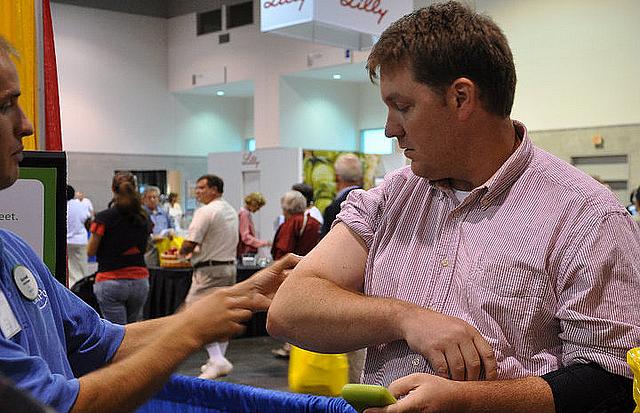Diabetes on the rise: Culture, environment and stigma all play a role

Diabetes impacts nearly 10 percent of Americans – that’s roughly 29.1 million people – and people of color are twice as likely to be diagnosed. Studies show another 8 million have not been diagnosed and millions more are considered pre-diabetic.
The Centers for Disease Control says diabetes is the leading cause of blindness, kidney failure, amputations, heart failure and stroke. It is expensive, emotional and traumatic for families and society, especially among Latinos, African-Americans and Native Americans.
The numbers are staggering — California has one of the highest rates in the U.S. — but diabetes remains a disease that few people discuss and many simply expect to get because it is prevalent in their family. Diabetes is something we all know exists but it gets little attention. When I started to talk to experts about diabetes, the one factor that continuously arose was the growing prevalence of the disease and its devastating toll.
I am interested in why diagnoses of this disease have increased so quickly, especially among people of color, and what factors contribute to the trend. Long before a diabetes diagnosis is given, studies show other factors such as food access, education, obesity and income may have laid a foundation for the disease.
One of the challenges with tackling these stories is that diabetes is not new, it’s not an instant killer, and it is a disease that disproportionately impacts the overweight, the less fortunate and people of color. I hope to explain some of the stigma that keeps diabetes below the surface through my reporting.
My 2016 California Fellowship series will explore the narrative of diabetes through its impact on families; how they have come to accept it; what cultural, environmental and financial factors may play a role; efforts to push back the disease through food and exercise; and how the health care system is trying to slow its spread through cultural outreach and place-based programs.
[Photo by Diabetes Education Events via Flickr.]

